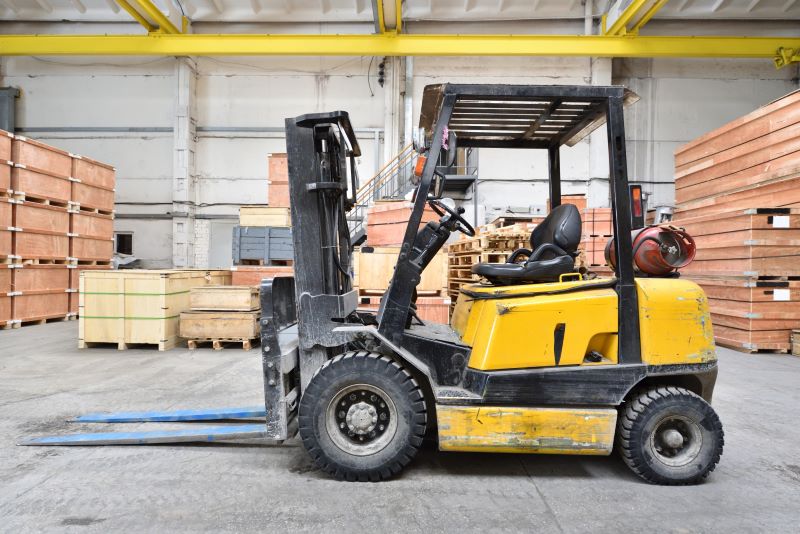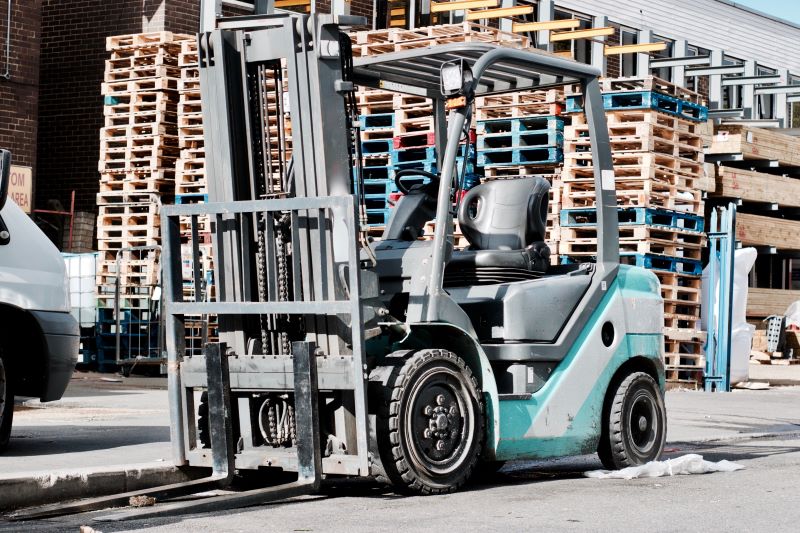
New forklifts depreciate quickly
Buying a used forklift can be a smart choice for several reasons:
Used forklifts are generally much more affordable than new ones, allowing you to save money or allocate funds elsewhere.
Depreciation
New forklifts depreciate quickly. A used forklift has already gone through that initial drop in value, making it a better investment over time.
Forklift depreciation refers to the reduction in value of a forklift over time due to factors like wear and tear, age, and usage.
Forklifts generally have a useful life of around 10 years, and they depreciate at varying rates depending on their type, usage, and maintenance. The depreciation may follow a straight-line method or an accelerated method, which affects how value is calculated over time.
The resale value of used forklifts can be influenced by demand, market conditions, and availability. A well-maintained forklift may retain its value better than one that has been heavily used or poorly maintained.
Businesses can often write off a portion of a forklift's cost through depreciation on their taxes, which can provide financial benefits.
Buying a used forklift means you're purchasing an asset that has already undergone significant depreciation. This can make it a more economical choice, as you won't face the initial value drop associated with new equipment. Understanding these aspects can help you make informed decisions regarding forklift purchases and financial planning for your business.
Choice
The market for used forklifts often has a wide range of models and types, giving you the flexibility to choose one that perfectly fits your needs.
Immediate Availability
Used forklifts can be more readily available, so you won't have to wait for manufacturer lead times.
History Insight
If you can obtain maintenance records and inspection reports, you can make a more informed decision about the forklift's condition and reliability.
Lower Insurance Costs
Insurance premiums are often lower for used equipment, further reducing your overall ownership costs.
When it comes to protecting your investment in a forklift, understanding forklift insurance is essential. Here are some important aspects to keep in mind:
Liability Insurance
This covers damages or injuries caused by the forklift to third parties or their property. It's typically required by law.
Physical Damage Protection
This coverage protects against damage to the forklift itself, whether from accidents, vandalism, or natural disasters.

The resale value of used forklifts can be influenced by demand, market conditions, and availability
Cargo Insurance
If the forklift is used to transport goods, this insurance protects the cargo from damage or loss during operation.
Factors Affecting Insurance Premiums -
Forklift Usage
The more frequently and intensely a forklift is used, the higher the premiums may be.
Age and Condition
Older forklifts or those in poor condition may attract higher insurance costs.
Safety Features
Forklifts equipped with advanced safety features may qualify for discounts on insurance premiums.
Training Programs
If your operators undergo formal training, insurers may offer lower rates.
Importance of Insurance -
Financial Protection
Insurance safeguards against potential financial losses from accidents or damages.
Compliance
Many jurisdictions require forklifts to be insured to operate legally. -
Peace of Mind
Having the right coverage allows you to focus on your business without the stress of unforeseen events.
Tips for Choosing Insurance
Compare Quotes
Get multiple quotes to find the best coverage for your needs at an affordable rate.
Assess Your Needs
Consider the specific risks associated with your operations to choose appropriate coverage.
Read the Fine Print
Ensure you understand all terms, conditions, and exclusions in the policy.
Consult Experts
It can be beneficial to work with an insurance broker familiar with forklift and equipment insurance. By being informed and proactive about forklift insurance, you can better protect your business and assets.
Upgrade Potential
You may be able to purchase a higher-capacity or more advanced model used than you could afford new.
Environmental Considerations
Buying used equipment can be seen as a more environmentally friendly choice, as it extends the life of existing machinery. Overall, opting for a used forklift can provide significant benefits while still meeting your operational needs.
When considering buying a used forklift, there are several important factors to keep in mind:
Budget
Determine your budget, factoring in possible repairs and maintenance.
Type of Forklift
Decide on the type you need (electric, diesel, or propane) based on your warehouse environment and usage requirements.
Capacity
Ensure the forklift’s weight capacity meets your operational needs.
Condition
Inspect the forklift thoroughly for wear and tear. Check the tires, mast, and hydraulic systems.
Maintenance History
Request records of maintenance and repairs to assess the forklift's history.
Test Drive
If possible, take the forklift for a test drive to ensure it operates smoothly.
Seller Reputation
Buy from a reputable dealer or seller with good reviews and customer service.
Warranties
Inquire about any warranties or guarantees after purchase.
Compliance
Ensure the forklift meets safety regulations and standards for your area.
Training
Plan for operator training to ensure safe and effective use of the forklift.
Doing your research and considering these factors can help you make a more informed decision when purchasing a used forklift.
-textend

